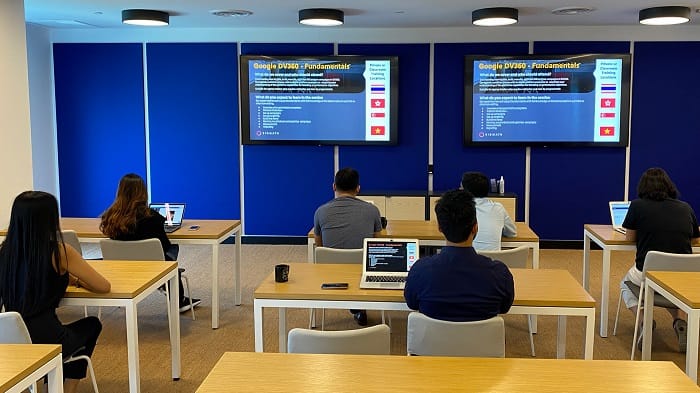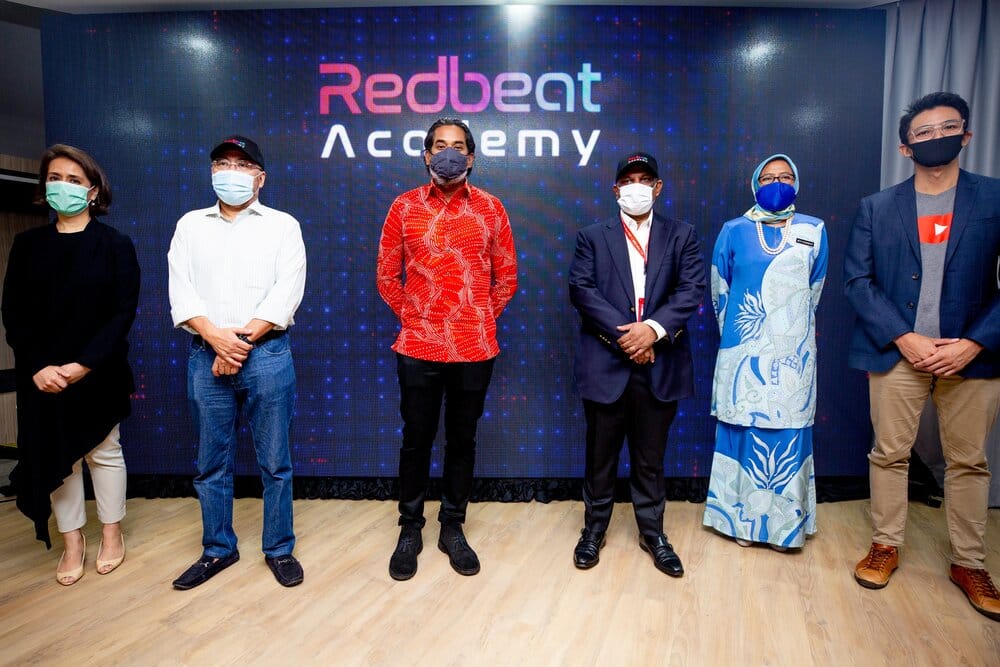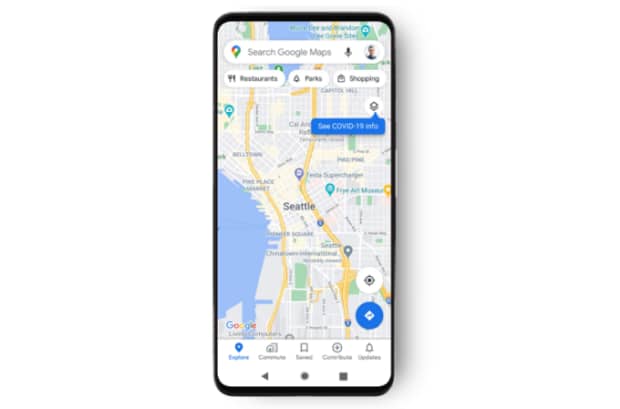Kuala Lumpur, Malaysia – AirAsia Digital has partnered with Google to launch the Redbeat Academy, a move to upskill and cross-train individuals to adapt to digital transformation.
Initially set up forAir Asia employees through a series of tech workshops, Redbeat Academy has now opened its doors to the public.
This move comes as part of the Academy’s objective and direction to build a future-ready next generation by providing a one-stop service in tech, leadership and innovation that is expected to be a vital catalyst for the digital economy in Malaysia and the wider ASEAN.
Redbeat Academy will focus on serving five segments which are employees, corporate and SMEs, government agencies, universities, and public individuals. With at least 100,000 talents to be tapped every year, they will provide solutions in three main areas: skills development program,betabuild labs – a program offered by AirAsia with support of Google to help enterprises incubate new digital businesses with employees – as well as career coaching and hiring service.
In addition, the Academy signed a partnership with Malaysian Industry-Government Group of High Technology (MIGHT) to reskill a pool of talent in software engineering and high technology projects such as blockchain and data. It has also joined hands with universities Universiti Teknologi Malaysia, Universiti Malaya and Asia School of Business in collaboration with MIT Sloan Management, to award a micro-credential to Redbeat Academy courses and acknowledge it as part of the Accreditation of Prior Experiential Learning (APEL).
YB Khairy Jamaluddin, minister of science, technology, and innovation (MOSTI) said, “I would like to congratulate AirAsia Digital and Google on this meaningful partnership and the launch of Redbeat Academy. The concept of the Academy itself signifies a vital global trend in today’s digital world, which reshapes how businesses are run, workplaces are restructured and product marketing is shifted from a more traditional way to digital and consumer-centric. These efforts are in line with the government’s key initiative, the National Technology and Innovation Sandbox (NTIS), aimed to accelerate Malaysia’s ascent in becoming a high-tech and high-income nation while generating greater social impact and strengthening the social innovation ecosystem structure.”
“MOSTI is proud to play our role in encouraging innovation from the grassroots with prominent industry players such as AirAsia, as it is evident that innovation will be the key driver of economies and markets worldwide. We look forward to seeing Malaysians from all walks of life and industries sign up for the courses offered at Redbeat Academy.”
Meanwhile, Tan Sri Tony Fernandes, chief executive officer of AirAsia Group said, “AirAsia has always embraced digitalization and today is another milestone for us as we launch our premier tech academy. We are proud to work hand-in-hand and cross-share our resources and knowledge with Google.”
“With the mission to empower, connect and develop a sustainable tech talent pipeline, we are also proud to open the academy to the public now to provide opportunities for everyone, with the focus on mentoring the best in breed industry-ready professionals and producing problem-solvers using technology. Everyone needs to keep learning, growing, and embracing the ever-changing tech landscape to ensure that we can stay relevant in this digital economy. I hope everyone will take this opportunity to learn new skill sets in tech so we can together strive for greater heights as a nation,” added Fernandes.
Director of Google Cloud Learning Services Rochana Golani also commented, “Cloud technology can enable sustainable growth and innovation for businesses both large and small, and the Redbeat Academy will help grow cloud skills and talent across Malaysia. As a Google Cloud Authorised Training Partner we also look forward to working with the team to deliver advanced curriculum and learning pathways to future cloud technology professionals.”
The Academy has recently celebrated the graduation of its first batch, comprising 135 employees who finished their digital fundamentals from the internal reskilling & upskilling program.










